|
Mary Wharton Williams is buried in the Philips' Sylvan Hall Cemetery
with her parents and some of her siblings. She is buried under a somewhat rare "Tabletop" grave marker with a very rare
pearl inlay of her name in the side of the top stone.
The top stone was broken into two pieces and one piece was missing from the cemetery. The top and support posts
were all buried in the ground in the cemetery when we began the restoration process in 2013.
The picture below was taken during the restoration of the top
before the new inlaid letters had been cleaned.
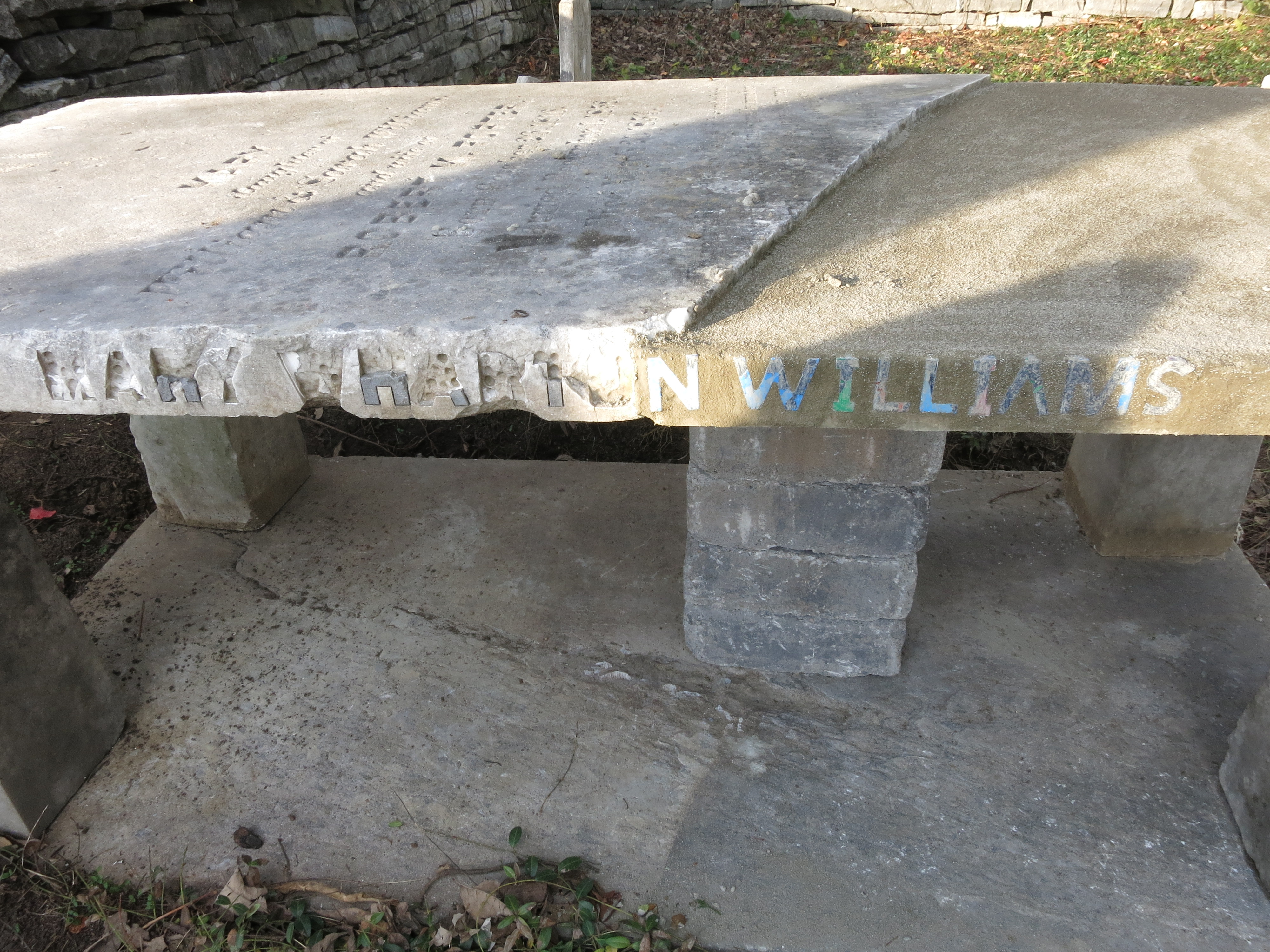
|
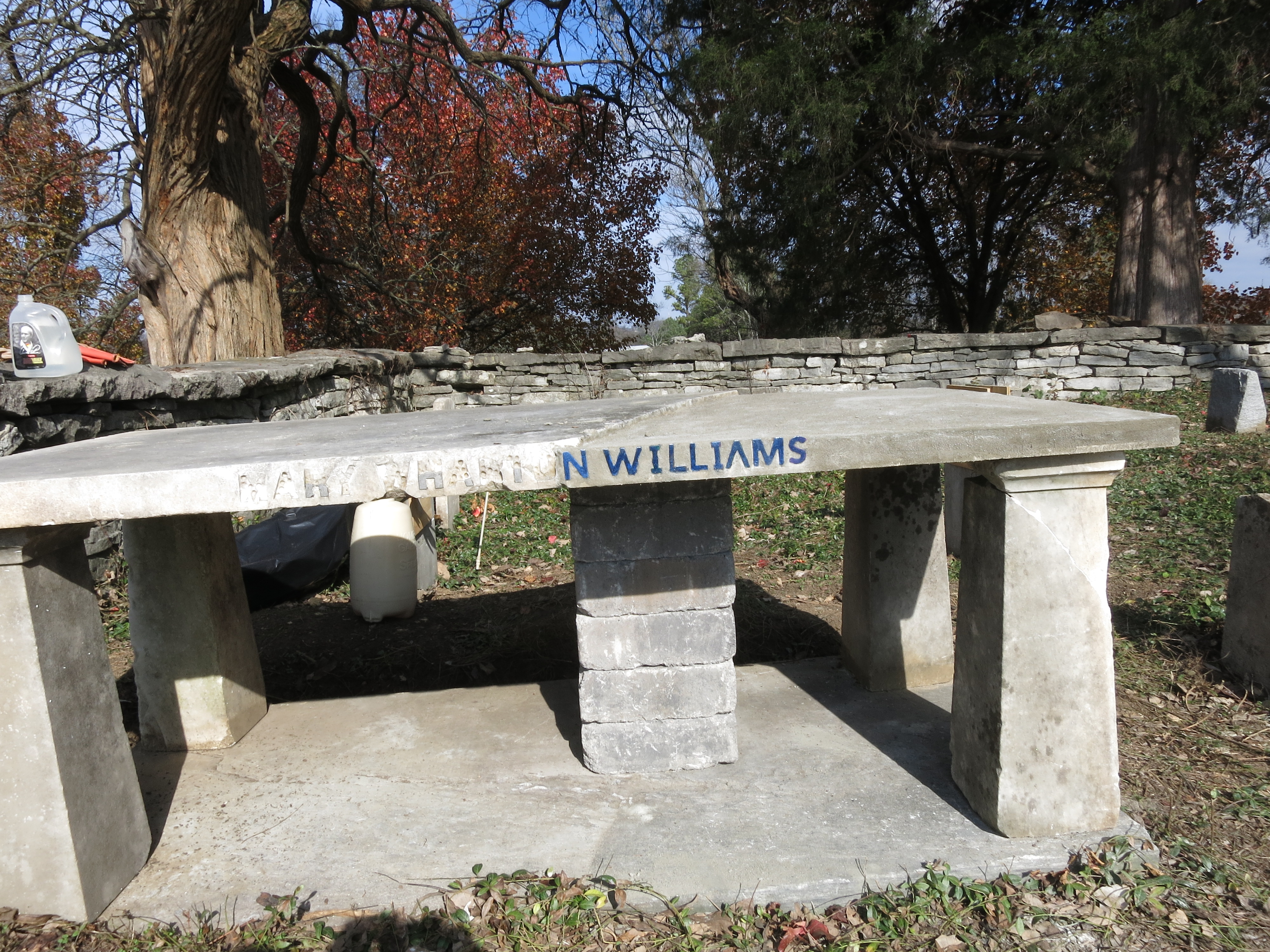
Above picture taken after new inlaid letters were cleaned.
|
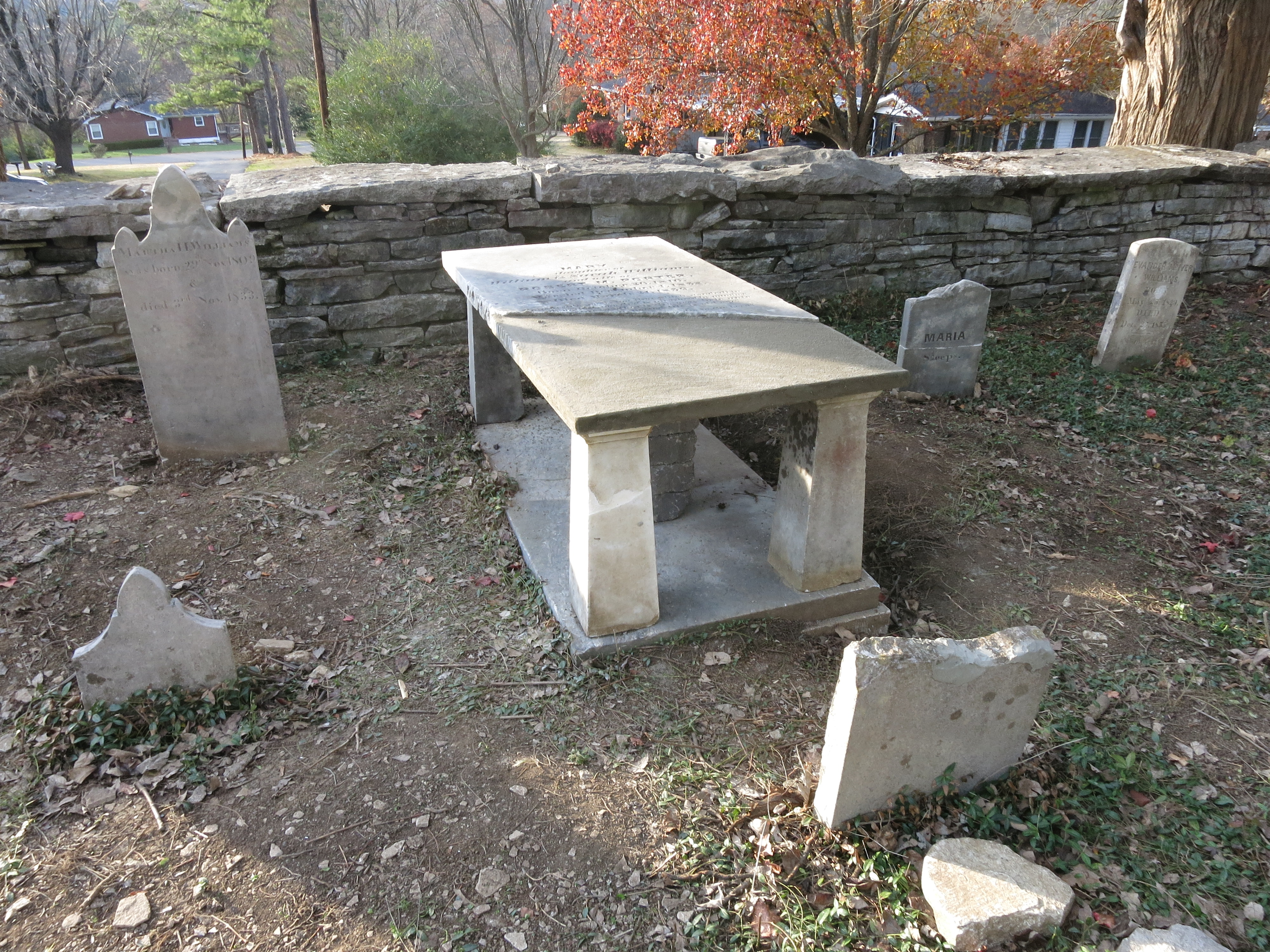
End view of "Table-top" grave marker
|
|
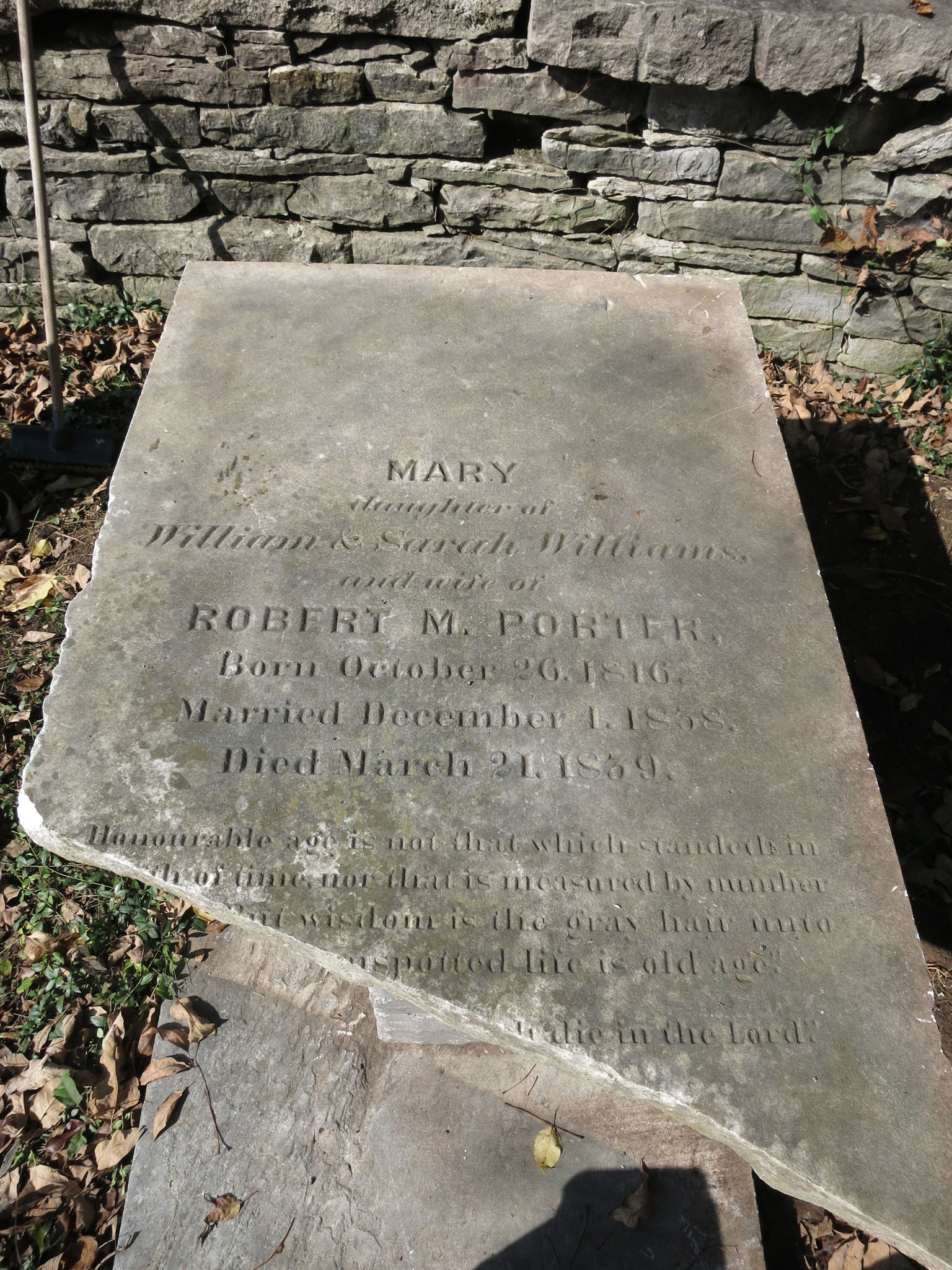
Stone on "Table-top" grave marker before missing part restored.
|
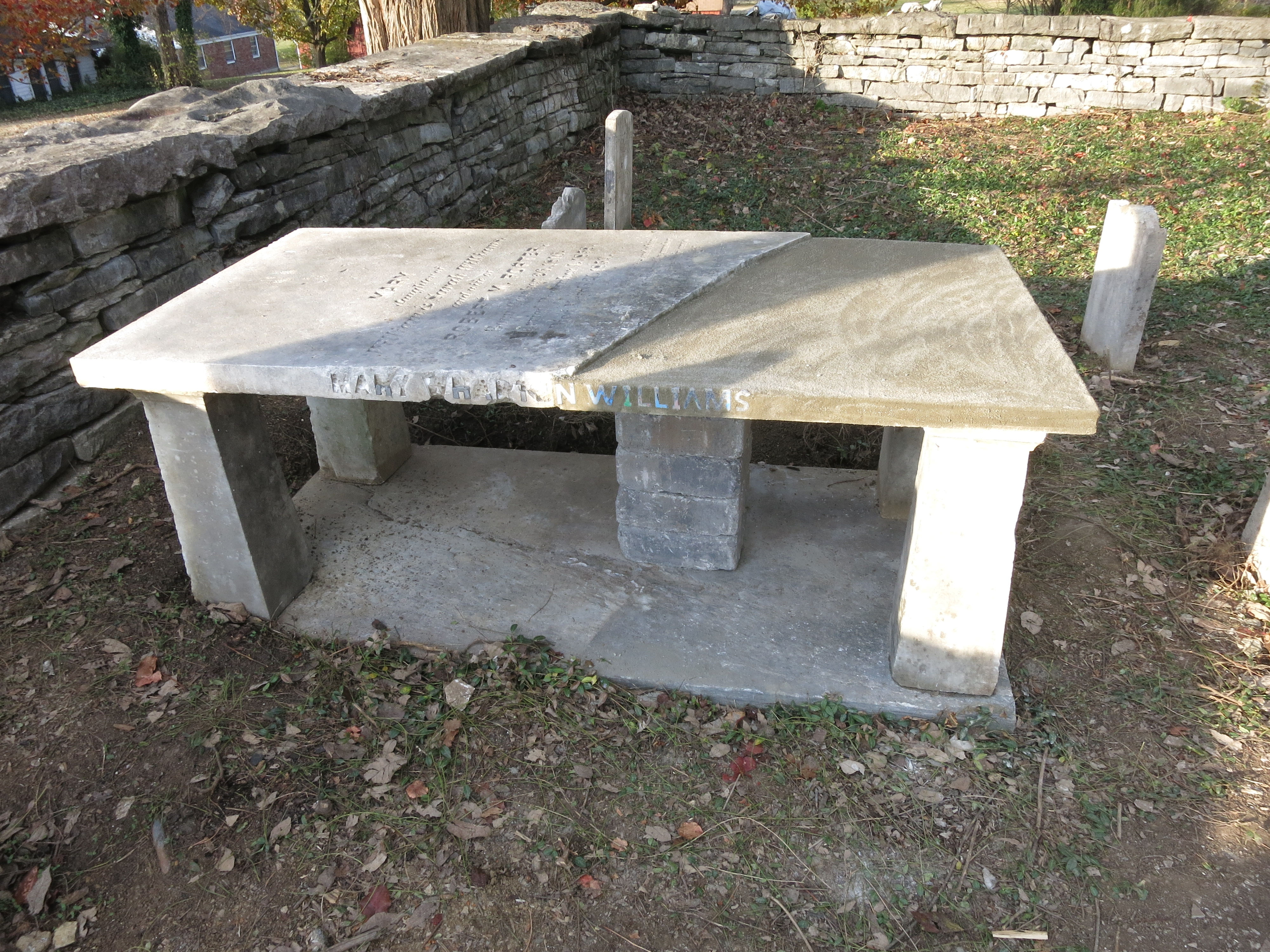
Side view of "Table-top" grave marker before new inlaid
letters were cleaned.
Inscription on
stone pictured to the left reads:
MARY daughter of William & Sarah Williams and wife of ROBERT M. PORTER Born
October 26, 1816 Married December 4, 1838 Died March 21, 1839
|
|
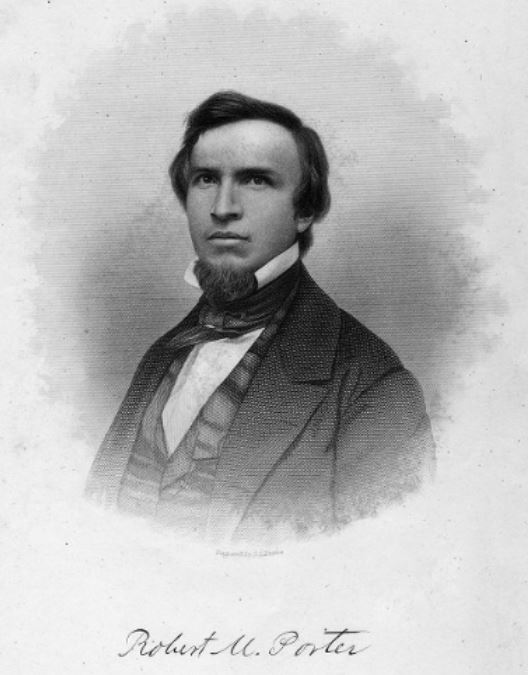
|
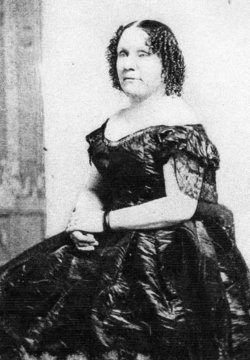
Robert married Felicia Ann Grundy on 14 July 1852.
She is the widow of William Eakin with whom she had two sons and two daughters. The marriage produced one son, Robert
Massengill Porter Jr. She was born 26 Jun 1820 and died 27 Jun 1889.
|
Robert Massengill Porter
was a remarkable man, graduating from Harvard University in 1836 with a BA degree and then a Harvard Law degree in 1838.
His wife Mary Wharton Williams died 21 Mar 1839 after only being married a few
months and he turned to the study of Theology at Princeton University in New Jersey, graduating in 1843. He then
turned to the study of medicine at the University of PA where he received his MD in 1845. After spending two years in
Europe studying anatomy, practical medicine, and surgery, he set up practice in Nashville TN.
Four years later he accepted the chair of Anatomy
and Physiology at the University of Nashville.
He married the widow of William Eakin, Felicia Grundy, who is the daughter of Felix Grundy who had served as U.S.
Senator from TN. They had one son.
He
died after a short illness on 1 July 1856 as the result of an infection he obtained during an autopsy. He was buried
in Mount Olivet Cemetery in Nashville TN.
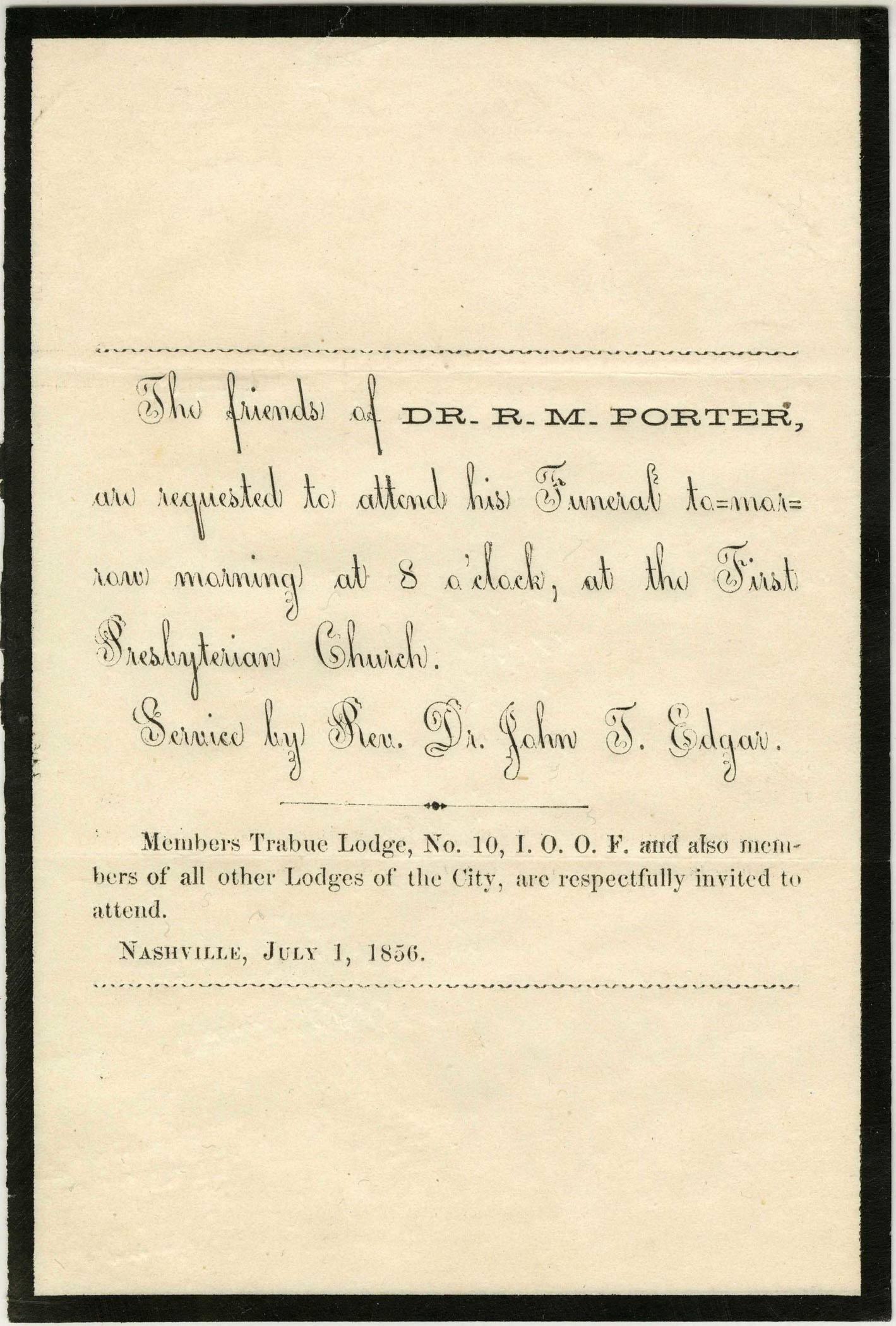
|
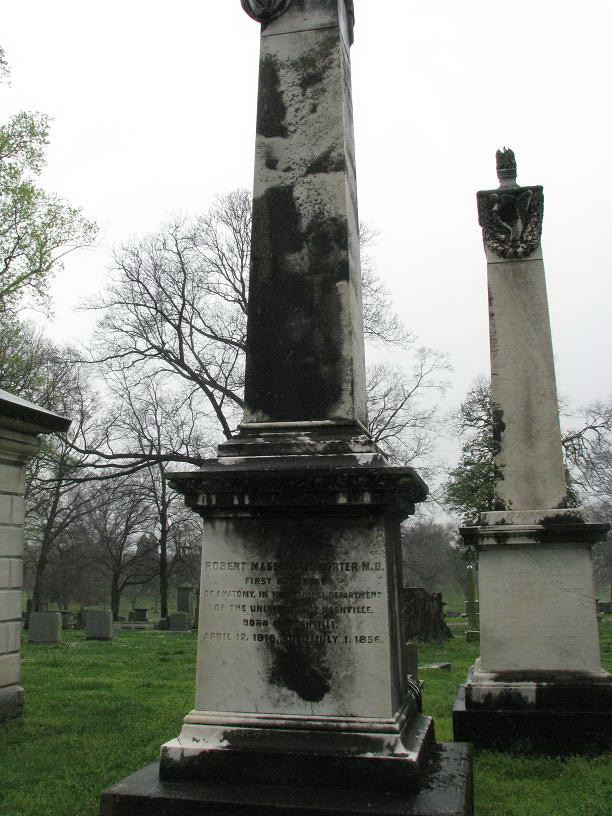
|
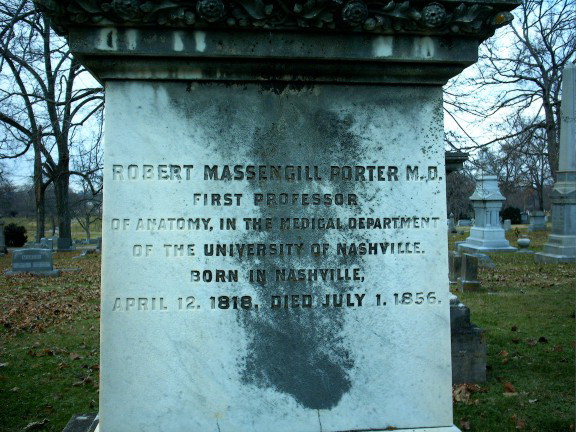
|
The below excerpts are from the
free Google book "Life and Character of Robert M. Porter MD" which was written to celebrate his life when he died early at
the age of 38.
The full eBook is included below also.
"He received the degree of Bachelor of Arts in
October 1836, and in November entered the Law Department of Harvard University
at Cambridge, Massachusetts, where he remained for nearly two years, under the
tuition of the distinguished jurists, Story and Greenleaf. He commenced the
study of Law with many misgivings as to whether his aversion to public speaking
and mingling with men would ever allow him to pursue the practice. However, he
was young, and had means, and no subject was better fitted to engage his
attention as a branch of useful and entertaining knowledge. Oh the 29th of
August, 1838, he was graduated as Bachelor of Laws, without being present at
the Commencement. After leaving Cambridge, he pursued his legal studies for
nearly a year in Louisiana, with his cousin, Judge Alexander Porter.
He then returned to Nashville, and on December
4th, 1838, was married to Mary Wharton (Williams), daughter of William Williams, Esq., of
this vicinity. The following letter from Judge Story, addressed to him on this
occasion, may be regarded as illustrative of the friendly interest in his
welfare with which he always succeeded in inspiring his teachers:
(Judge
Story served on the Supreme Court of the United States from 1811 to 1845 and was a Harvard Law School class-mate of Mary's
father William Williams.)
 |
 |
|
WASHINGTON, JANUARY 17, 1859. MY DEAR SIR: I have
transmitted your Diploma, which I brought from Cambridge, to the Hon. Mr. Bell, according
to your suggestion. Allow me to congratulate you on your admission to the Bar, and still
more so upon your marriage. It is a source of sincere pleasure to me that you
have thus become allied to one of my early friends and classmates, whose purity of character
and high intellectual qualities have always commanded my warmest respect and praise. Give my kindest regards to your wife, and assure
her that I shall ever take the liveliest interest in her welfare, and that I feel proud
that one of my own pupils, every way deserving of her affection, has had the good fortune
to obtain her hand. May you live together in happiness many, many years, and possess, what
is above all price, that mutual devoted love, which gives the highest charm to
prosperity, and softens, and soothes, and cheers the heart even in the darkest
hours of adversity. Pray give my truest respects to Mr. Williams,
and assure him that as we are descending into the vale of life I feel it among
my best consolations, that, distant as we have been from each other, I have
been enabled to hold a place in
his friendship. I am affectionately your friend, JOSEPH STORY.
|
|
 |
 |
This marriage, the fruition of an early formed and devoted attachment, was destined
to shed happiness upon only a brief portion of his days, as Mrs. Porter lived but a few
months after their union: she died March 21st, 1839. His
hopes of domestic happiness and plans of life, thus rudely broken in upon by the hand of
death, inclined him to seek retirement from the world, and taught him a severe, but
doubtless salutary lesson, on the vanity of all human expectations. He
connected himself with the Presbyterian Church in this city, and, in June,
1840, became a student in the Theological Seminary at Princeton, New Jersey. Here,
pursuing his studies with his usual diligence, he won a, high standing among the six score young men then assembled in
ths halls of the Seminary, from every portion of the Union. I visited Princeton while he
was there, and found him a general favorite for his amiable and noble qualities, and highly
respected for his scholarship. On the 15th of May, 1843, he received the
certificate of having completed the entire Theological course to the satisfaction of
his professors—the two Alexanders, Samuel Miller, and Charles Hodge. He did not, however,
apply to Presbytery for license to preach; but at once turned his attention to
the study of the profession which was to be his true calling, and which had been his
father's choice for him. He went to Philadelphia, and commenced the study of Medicine under the preemptorship
of Dr. Hugh L. Hodge, professor in the University of Pennsylvania."
|

